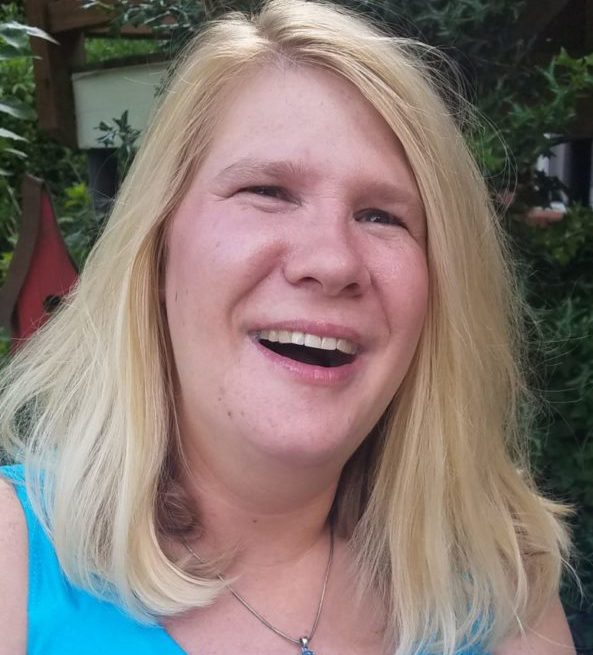Going to college has been my goal since an early age. Throughout the first three years of high school, I had taken all the necessary college prep classes to achieve this ambition. I then started working with the Vocational Rehabilitation Agency during my senior year to prepare for the next step in my education. My journey in advocacy began.
When I first met my vocational rehabilitation counselor, I anticipated a connection because she also had a disability. However, the meeting went differently than planned. My counselor started making assumptions about me without taking the time to get to know me or understand my capabilities. She informed me that despite completing all the necessary college classes, she believed I would be better off seeking employment or attending a vocational training school.
At that moment, I realized I had to start advocating and standing up for myself. I told the counselor that attending college was my goal, and I won’t give it up. Even though the counselor did not initially support my decision, after much convincing, she reluctantly backed my choice.
Following this experience, I continued advocating for myself in various areas. I advocated for more time on my SAT/ACTs. Also, I encouraged my friends to drive me places, giving me a sense of independence and helping me develop my own voice.
Self-advocacy has helped me improve my life, and I am sharing my best practices to help you improve yours. Keep reading to learn:
- What is advocacy and self-advocacy?
- What does it mean to be a self-advocate?
- Why is it important to have your own voice?
- Examples of self-advocacy.
- Ways to speak up for yourself.
Defining Advocacy
I have spent most of my career trying to help others understand the concept of advocacy, but what does it really mean? Advocacy is when a group collectively comes together to support or fight for an idea, issue, or cause they believe in. Advocacy also involves speaking on behalf of another person or group of people who may not speak for themselves. It entails ensuring that other people’s rights are protected.
Self-advocacy, on the other hand, is the ability of an individual to express their wants, needs, and desires to others. It also means developing your own voice and speaking up for yourself, even if you are afraid. To be a strong self-advocate, you must take time to learn different things about yourself and try to identify goals for your future.
How to Become a Self-Advocate
Becoming a self-advocate does not happen overnight; it takes time, effort, and practice. When we are younger, we rely on our parents to care for us and make most of our decisions. As we become adults, we need to take a more active role in our lives to become more independent.
To become a successful self-advocate, you must start becoming the “driver of your life.” What does this mean? It means you know what is happening in all aspects of your life and actively participate in all major decisions. It also means that you can express your goals for your future to others. Being the driver of your life does not mean you cannot have support from others. People can assist you, but they shouldn’t do everything for you. If people with disabilities want to become the “Driver of their own Lives” then they need to be seen as accountable for their actions and decisions. A shift in mindset may need to occur between parents and young adults where they both understand that the person with the disability is personally responsible for making all the critical decisions in their lives. This means that individuals with disabilities are accountable for whatever the outcomes of their choices are good or bad. It also means that an individual will become more mature and should no longer attribute successes or adverse outcomes to his or her parents’ for their decisions. This is how people with disabilities truly become self-advocates.
The Importance of Having Your Own Voice
I attended Reinhardt University, receiving my bachelor’s degree in psychology. College life treated me well. It was a smooth experience with a not-so-smooth finale.
While I was preparing for my graduation, ready to see my dream come true, startling news was about to ruin my big day. I was informed by the school that I would not be able to go on stage and get my diploma like everyone else. I knew I had to do something. I immediately scheduled a meeting with the Dean of Students. I was on a mission to convince the school to let my friend Alyson and I graduate on stage with our class. He told us that our power wheelchairs would not be able to be on stage and that someone would bring our diplomas down to us. Not exactly the graduation I wanted. As you can imagine, Alyson and I were extremely disappointed.
We were about to be robbed of a dream we shared – to go onstage and receive our diplomas like everyone else. We knew we could not let this issue go; it meant too much to us. I knew it was possible. A picture taken during my high school graduation was perfect evidence.
Back then, we had a ramp that allowed me to go on stage just like my other schoolmates. “Building a ramp,” we explained, “is an example of Universal Design and would benefit all graduates.” Our voices were heard, and Reinhardt finally built a ramp to allow us to be onstage for graduation. This was another test for my self-advocacy skills.
Why is it vital for young adults with disabilities to have their own voice? Having your voice means you can think independently and convey your thoughts and ideas to others. As people with disabilities, we are the experts in our lives, and no one can understand what we are going through better than we can. It can be nerve-wracking when you start to use your own voice and speak up for yourself. What if you are unsure what to say or who to talk to? What if people are not listening to you or being receptive to your words? I experienced all these emotions when I was starting to find my own voice. It can sometimes get tricky, discouraging, and frustrating. Still, after every small win, you get stronger and more confident.
Examples of Self-Advocacy and Ways to Stand Up for Yourself
The earlier you learn to speak up for yourself, the better. You can start by making small decisions, like picking out your clothes and stating what you want to eat. Next, you can ask questions when you need help understanding something or more clarification. Never be afraid to ask questions, even if you feel like the only one who does not understand something.
Then, start attending and participating in Individualized Education Program (IEP) or Vocational Rehabilitation meetings. There is a difference between attending these meetings and participating in them. When you go to these meetings, make sure you are paying attention to the entire discussion. Be active in the conversations and ask questions if you need help understanding something. These meetings are about you.
Remember, you must be involved in every decision about your life. If you know you have accommodations, take time to understand what they are and how they help you perform your schoolwork or job easier.
Self-advocacy is all about taking control of your life and taking steps to become as independent as possible. Becoming a self-advocate is a lifelong process. When you master it, it will change your life forever.

I’m Kylie Moore, a 35-year-old from Roswell, Georgia, living with Cerebral Palsy. I’ve dedicated my career to advocating for the disability community, creating self-advocacy programs, and serving on boards. I founded the Ambassador Program at AADD, received the Tom Miller National Advocacy Award in 2020, and now advise Arts InCommunity. When not teaching, I can be found watching the Georgia Bulldogs or my beloved New England Patriots play football or participating in wheelchair sports.



